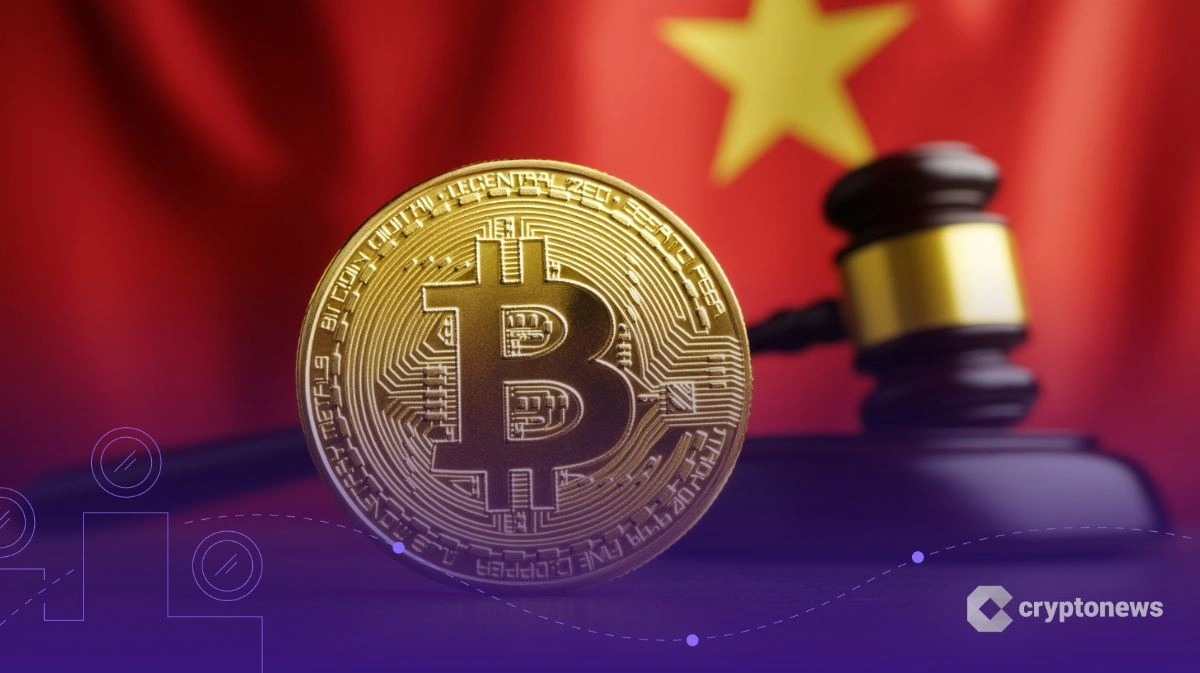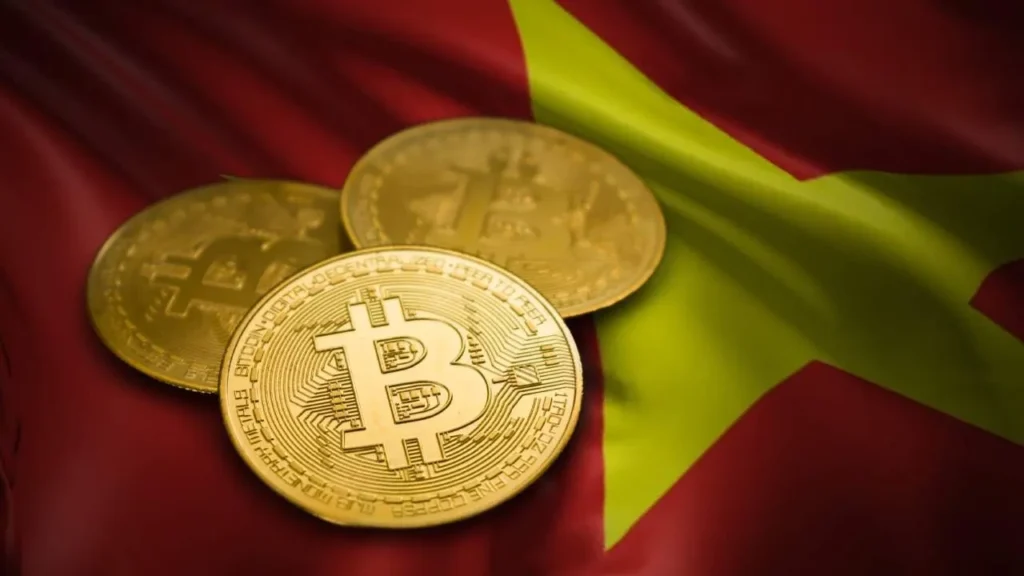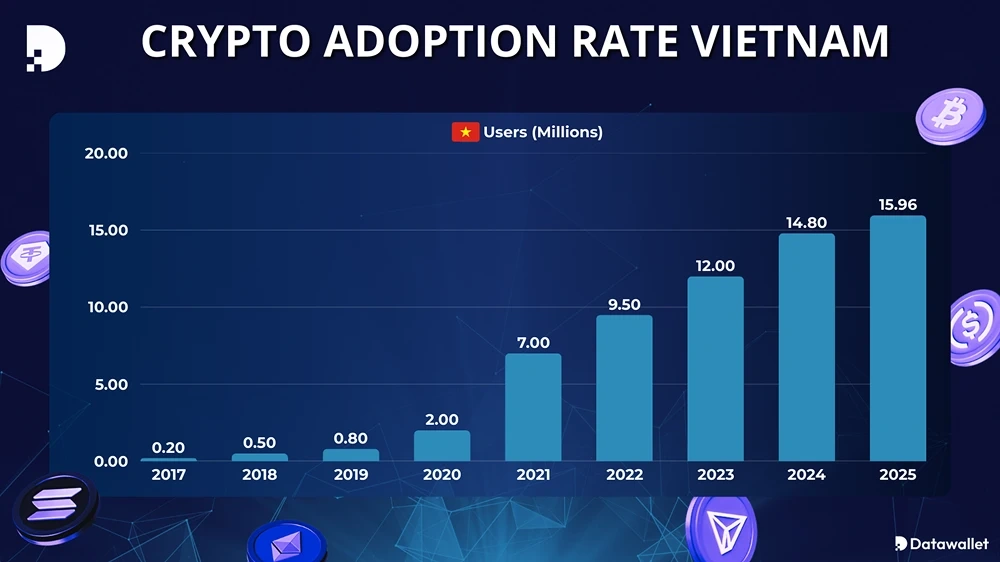Vietnam Crypto Law 2025: A Turning Point for Digital Asset Regulation
As Vietnam steps further into the digital finance era, its government has rolled out sweeping changes under the newly established Vietnam crypto law in 2025. Designed to define and control how digital assets are issued, traded, and licensed, the regulation offers clarity for both domestic users and international crypto firms eyeing Vietnam’s fast-growing tech-savvy population.
The framework primarily targets Virtual Digital Assets (VDA) — a term now officially defined in Vietnam’s legal system. With specific VDA rules in place, 2025 marks a significant milestone in how Vietnam handles the delicate balance between innovation and oversight.
From Uncertainty to Structure: How Vietnam Regulates Digital Assets in 2025

Credit from CryptoRank
Just a few years ago, Vietnam’s approach to crypto felt ambiguous. Despite high trading volumes and a booming interest in digital currencies, there was no dedicated law explicitly governing cryptocurrencies or tokens. This left many investors and startups operating in a gray zone — technically not illegal, but also not clearly legal.
Now, the landscape has shifted. Under the 2025 regulatory framework, Vietnam VDA rules lay out who can issue digital tokens, how they must be registered, and the categories they fall under. The State Bank of Vietnam, in coordination with the Ministry of Finance and the Ministry of Public Security, oversees enforcement and compliance.
This structure doesn’t just help local firms—it signals to international stakeholders that Vietnam is taking crypto seriously, both as an economic opportunity and a national security matter.
Crypto Trading Legal Status in Vietnam: What’s Allowed Now?

Credit from xangle.io
Crypto trading in Vietnam is no longer an informal activity. While cryptocurrency is still not recognized as legal tender, crypto trading’s legal status in Vietnam is now defined under regulatory supervision.
Traders are required to register with licensed platforms, and anti-money laundering protocols are now enforced. Exchanges wishing to operate must undergo a licensing process and prove robust compliance capabilities.
For everyday users, this means platforms must verify identities, report suspicious activities, and implement limits on certain transactions. While this introduces some friction, it’s seen by many in the tech and financial sectors as a welcome step toward legitimacy and safer participation.
VDA Licensing Requirements in Vietnam: What Firms Must Know

Credit from Decrypt
One of the central pillars of the Vietnam crypto law in 2025 is its VDA licensing requirements. Any entity that wants to issue, trade, or facilitate VDAs must apply for an operational license through the Ministry of Finance.
Licensing covers multiple aspects:
- Security and data protection standards
- Proof of financial stability
- Transparent business models
- Regular auditing and reporting requirements
This rigorous process aims to prevent the kinds of frauds and sudden platform collapses seen elsewhere in the global crypto market. At the same time, it introduces entry barriers that may slow down smaller or less-prepared startups. Still, the tradeoff is clear: Vietnam wants to promote serious, accountable players in the space.
Vietnam Crypto Law 2025: Challenges and Realities on the Ground

Credit from CCN.com
Implementation hasn’t been seamless. On the streets of Ho Chi Minh City and Hanoi, digital currency ATMs are still rare, and many citizens remain unclear about the practical implications of the new laws. Crypto enthusiasts online have voiced concerns about overregulation, especially among Vietnam’s younger retail traders who have historically driven local adoption.
Meanwhile, some firms have paused operations temporarily while they navigate the licensing maze. Despite the challenges, there is cautious optimism—especially from fintech leaders who see the law as a foundation for long-term trust and investment.
Conclusion: A Maturing Market Under the Vietnam Crypto Law

Credit from Datawallet
Vietnam’s 2025 shift toward regulating digital assets through the Vietnam crypto law and detailed VDA rules marks a clear effort to bring order to a once chaotic space. While there are growing pains, the move positions Vietnam to compete more effectively in the global blockchain economy.
As regulations continue to mature, both investors and developers will be watching closely—hoping that this new legal structure will offer the stability needed to fuel Vietnam’s next phase of crypto innovation.




